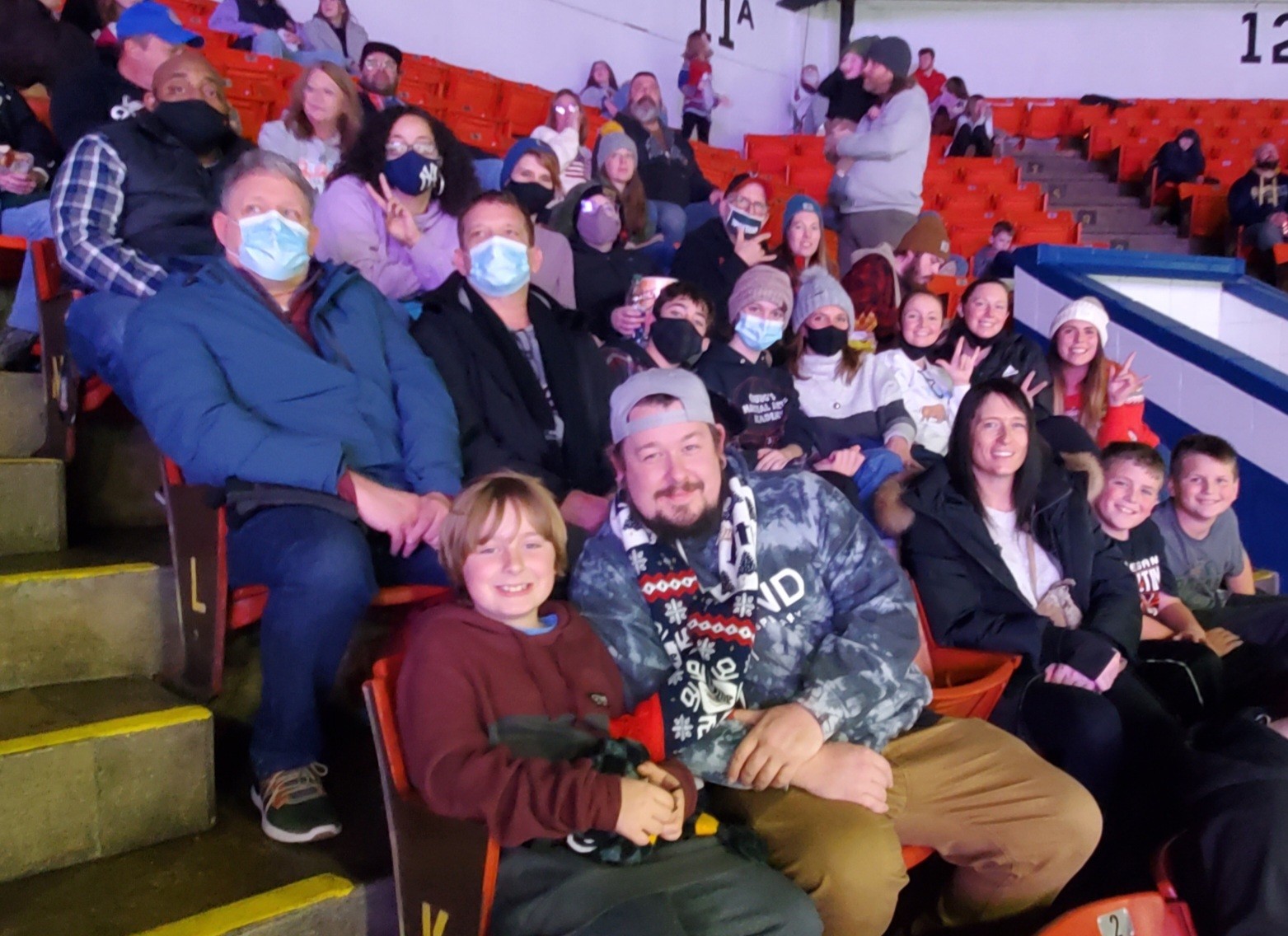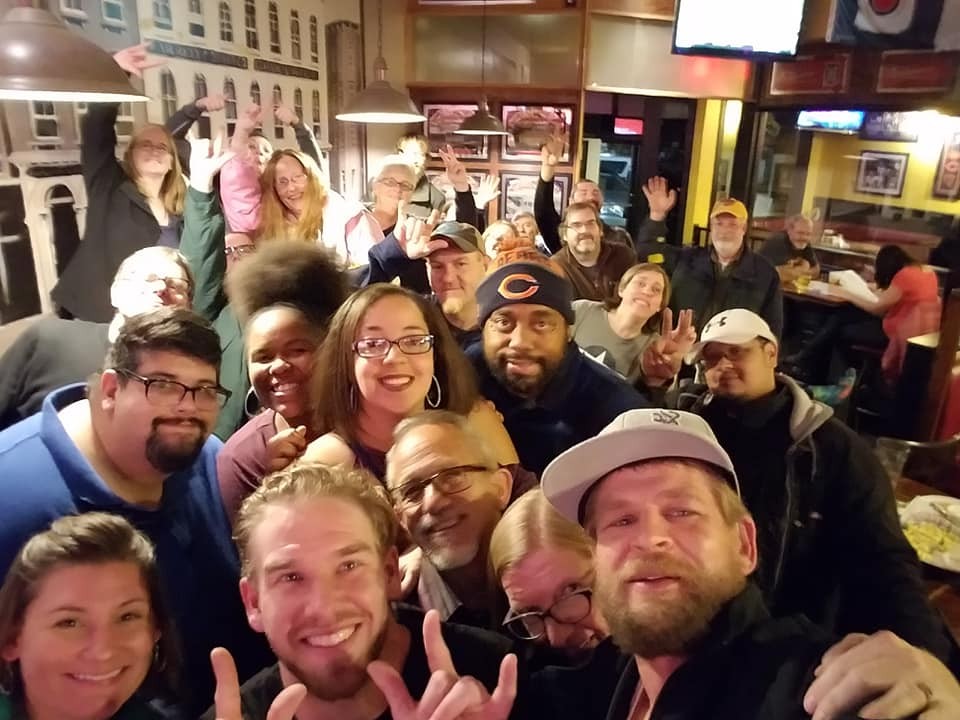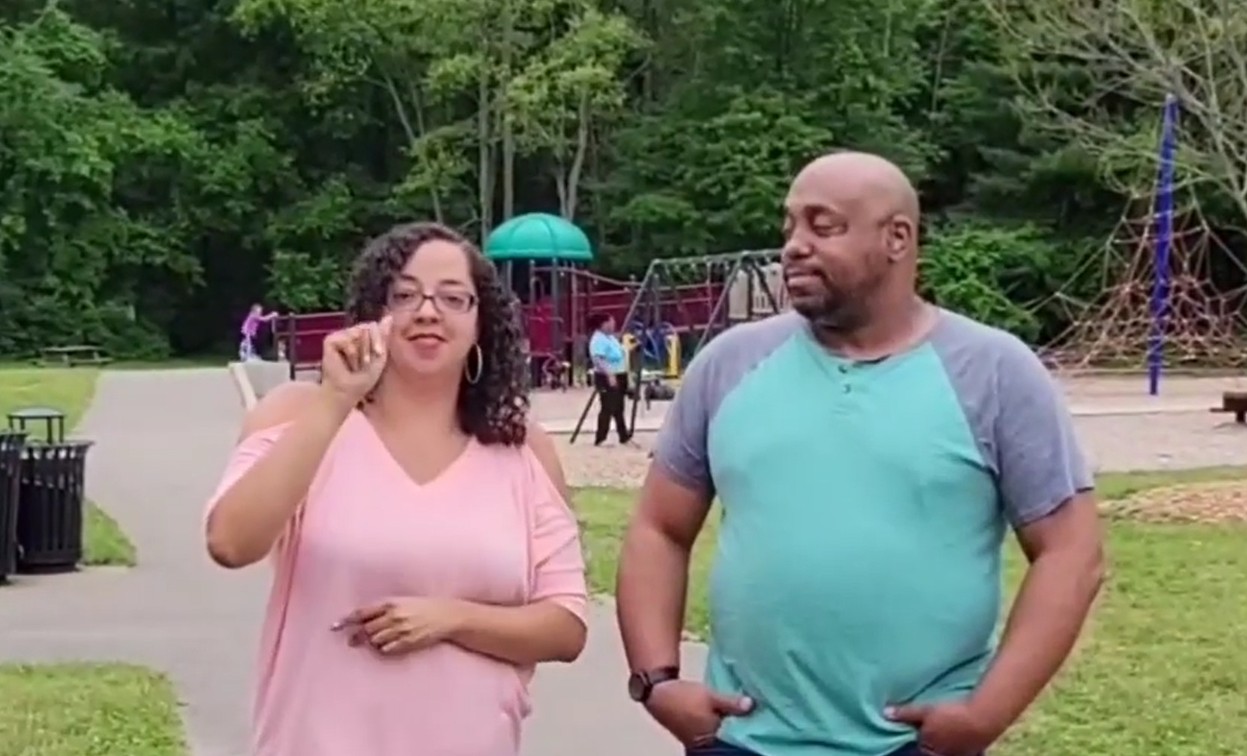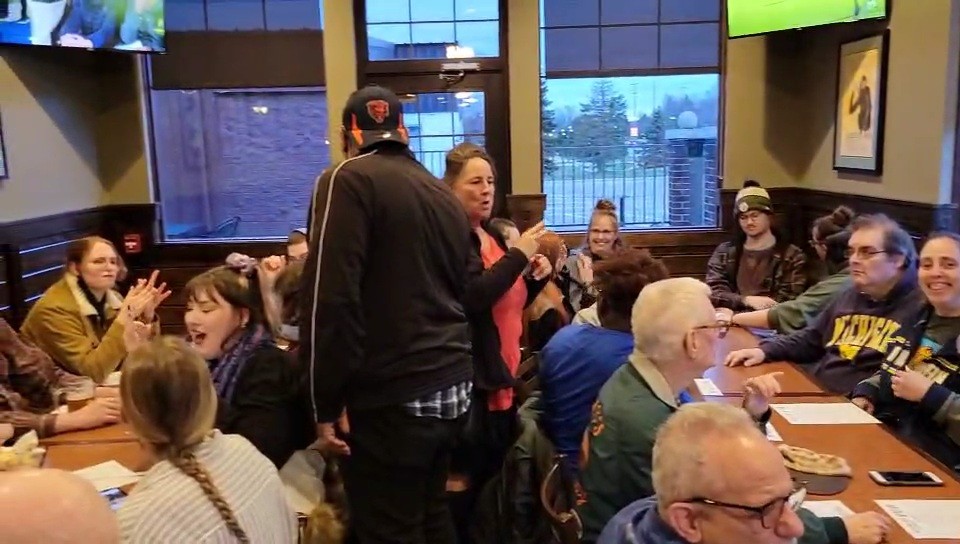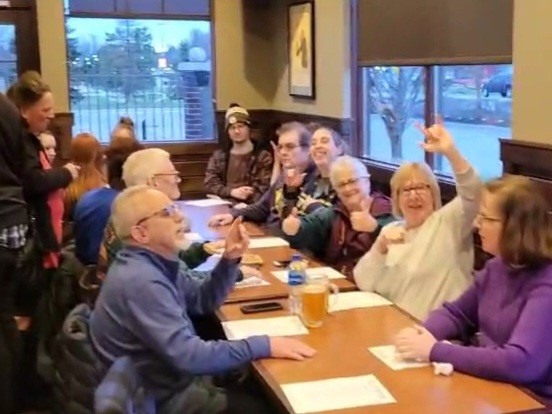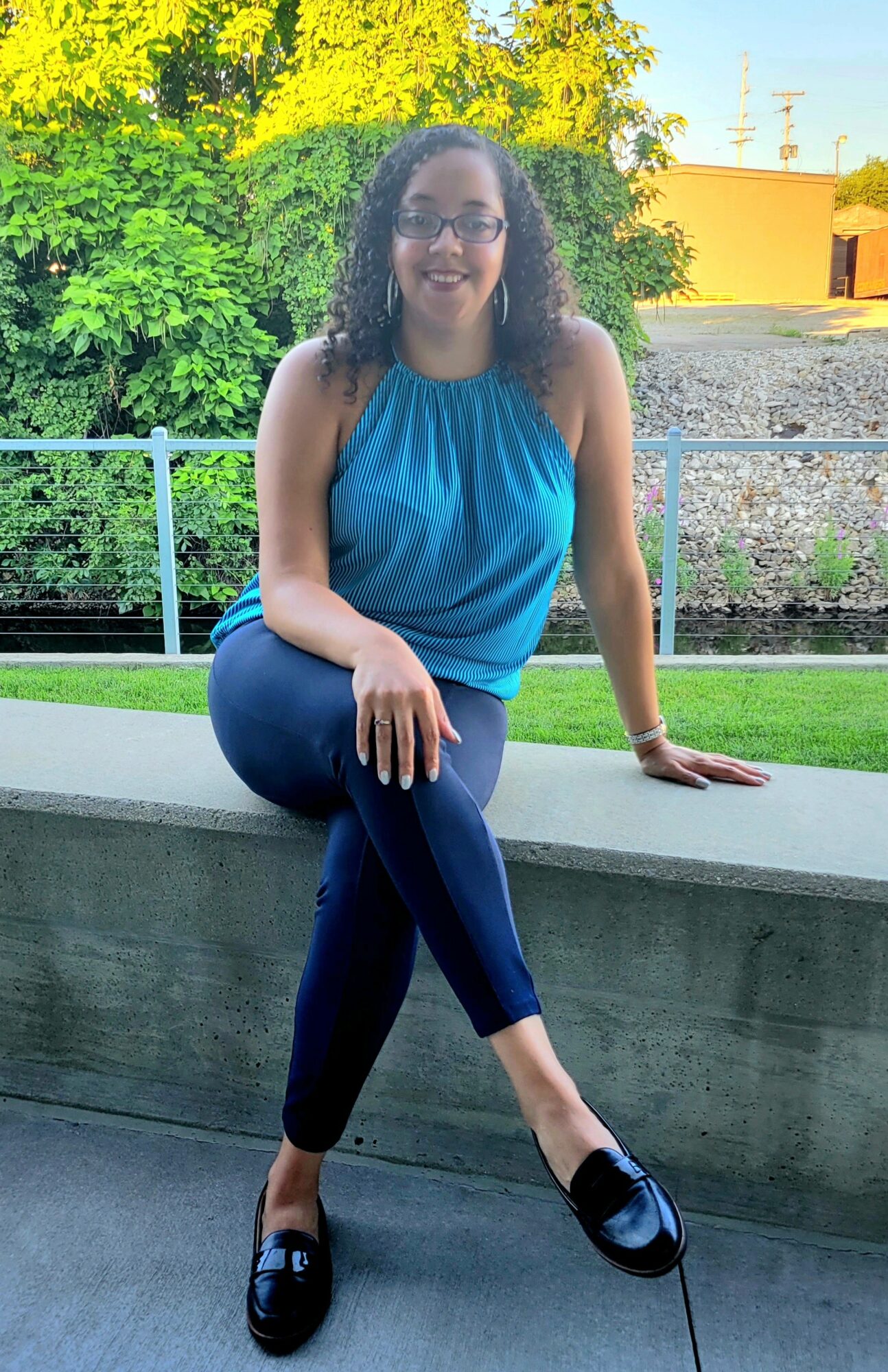 We may be viewed
We may be viewed
Today we’d like to introduce you to Tanya Timmerman.
Hi Tanya, it’s an honor to have you on the platform. Thanks for taking the time to share your story with us – to start, maybe you can share some of your backstories with our readers.
As a Deaf person, sign language has always been a part of my life. I started learning sign language at 9 months old, and growing up, that gave me 100% access to language. During my school years, I’ve met other Deaf and Hard of Hearing peers and developed a bond using American Sign Language (ASL). At that very moment, I realized how the Deaf community is such an amazing tight-knit community. Once I entered college, I started meeting countless Deaf people from all walks of life — not only locally in Kalamazoo but out of town and even out of state. They helped me build my identity as a Deaf person and provided me with resources to advocate for myself. You may notice that I spell Deaf with a capital ‘D’ and not a lowercase ‘d’ and there’s a reason for that. When someone identifies themselves as a Deaf person, that means they culturally identify as Deaf, accepting of who they are — a proud Deaf person! They are immersed in the Deaf world with such a rich and unique language. Yes, American Sign Language is a real language with its own grammar and syntax, completely different from English. Whereas a deaf person (lowercase ‘d’), considers it more of a medical term/label and typically are not engaged in the Deaf community nor use ASL.
This confirmed my passion for educating others about this beautiful language and culture, and this led me onto a path teaching college courses on ASL/Deaf Culture. However, this wasn’t enough, I still felt the need to do more for the Deaf community, and five years ago, an opportunity arose. A Deaf couple who had been hosting Deaf events for years decided to retire, and no one was willing to take on the responsibility. I decided this would be a perfect moment to step in and become the host of a new Deaf non-profit organization; therefore Kalamazoo Area Deaf Night Out was born! Since 2017, as the creator and host of Kalamazoo Area Deaf Night Out, I plan monthly events at different locations within southwest Michigan for members of local Deaf and Hard of Hearing (DHH) communities to get together and socialize, creating a “Deaf space.” We welcome everyone, whether they are ASL students/signers, interpreters, or anyone interested as long as they share the love of ASL and Deaf culture. My co-host of two years, Jamell Bond, helps with the brainstorming and duties since we do have full-time jobs outside of this organization. We typically collaborate with other businesses within the community and organize various events such as gatherings at a local restaurant, picnics, coffee shops, sporting events (baseball and hockey), movie theaters, or activities such as bowling and kayaking.
Would you say it’s been a smooth road, and if not, what are some of the biggest challenges you’ve faced along the way?
I’d be lying if I told you everything has been effortless and smooth, but I wouldn’t change it for the world. What many people don’t know is the amount of discrimination that Deaf people face every day. Audism (defined as discrimination or prejudice against individuals who are d/Deaf and hard of hearing) happens in different forms. There have been several challenging moments where several businesses were hesitant on allowing us to use their space for events once I mention the word “Deaf” or the fact that it’s a large group. Even when we’re being served at restaurants, accessibility becomes an issue when servers freak out because they assume there will be a communication barrier. That is where we come into play. While the Deaf community support and uplift each other, we also educate hearing people on how to be comfortable and effectively communicate with us, not necessarily with ASL but with additional communication modalities.
COVID hasn’t helped either. Once the pandemic happened, the mask mandate made it extremely difficult for the Deaf and Hard of Hearing community to communicate — the basic and simple interactions were now difficult and frustrating. We communicate not only with our hands but with our face. ASL grammar is conveyed through non-manual markers such as facial expressions and mouth morphemes. Also, some (but not all) like to rely on lipreading so with the facial coverings, this created huge barriers in communication. Many places were shut down and not allowing social events, so the DHH community weren’t able to connect in person for a while. Once things started to open back up, we recognized the need of face-to-face interactions and decided to host events again. Although we may still occasionally face struggles of finding venues that has enough staff to accommodate us (with the shortage of workers these days) and many businesses either closed down permanently or still limiting the number of people. We still work diligently to find further options and places that are willing to accommodate because we know how important it is. This created some sense of normalcy again.
As we are creating visibility in that space, this exposes hearing people to our world and debunks any misconceptions/myths that they may have regarding to Deafness. We are able to show that we can do everything they can do (except maybe hear) and enjoy life the same way they do. I could go on and on about barriers and struggles, but this organization gives DHH people the opportunity to focus on positive things. As we share our experiences and work together, we are empowering ourselves.
Thanks for sharing that. So, maybe next you can tell us a bit more about your work?
Two years ago, my co-host and I took the initiative of collaborating with our local movie theater, Celebration Cinema. We, as Kalamazoo Area Deaf Night Out, decided it was time to improve accessibility for our DHH moviegoers. At that time, they either didn’t go theaters or watched movies at home with subtitles once it was released OR would watch movies at theaters with personal captioning devices that are placed in cupholders and connected by Wi-Fi. Those captioning devices are not the most reliable since it would often fail to work, whether it was missed/dropped dialogue, zero captioning at all, or synced to the wrong movie. Our plan was to provide Open Captioning, where the captions appear on the screen and can be seen by everyone in the theater room. We worked with the manager of our local Celebration Cinema and showed one open captioned movie per month and gradually increased it to one or two captioned movies a week. This gained the attention of Celebration’s Director of Community Affairs and six months ago, they set up a pilot program where the movie theater would offer showings of five top movies in open captioning per week instead of being limited to one movie! It was such a big hit with many Deaf people now sharing the joy of being able to have access to movies and enjoy the experience with the public. Because of this, Celebration Cinema now offers two days (Sundays and Wednesdays) with five open captioned movies at ALL locations in Michigan! This is an amazing accomplishment and a start of creating accessibility everywhere, not just for the Deaf and Hard of Hearing community but for everyone else who can benefit from it as well.
What sets me (us) apart from others is the fact that I strive to bridge that gap between the Deaf world and hearing world while encouraging DHH people to be confident and proud of their identity. By providing Deaf space, we’re allowing them to be free and express who they are. It’s always a good time when we get together. We may be viewed as a minority, but we’re working hard to advocate for ourselves and changing that outlook. I wish I could spread and share my goals worldwide, but I’ll start with one city at a time!
What do you like and dislike about the city?
I love how Kalamazoo is a perfect, happy medium between a metropolitan area and small town. It has an urban-suburban feel…not too small nor too big of a city. Don’t get me wrong; I love visiting metropolitan places such as New York City and Chicago; it’s fun to explore, and there’s always something to do, but the fast-paced life/hustle and bustle can be too much sometimes. Every time I return home to Kzoo, it gives me a sense of security and calmness. We love the fact that Kalamazoo is slowly flourishing with new restaurants and breweries, which allows us to give them the local support by hosting our Deaf Night Out functions there.
On the other hand, what often frustrates me is the lack of amusement centers and entertaining venues here that has access to variety of activities. We’re trying to keep our events/socials fun and creative with different things to do instead of resorting to restaurants and bars. We still love our city though!
Contact Info:
- Facebook: https://www.facebook.com/KzooDNO/
